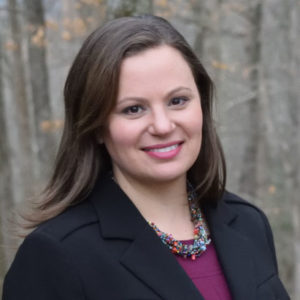 This article was originally written by Nicole Joseph an attorney who practices special education law in Maryland.
This article was originally written by Nicole Joseph an attorney who practices special education law in Maryland.As any parent whose child has a 504 plan or an IEP knows. Sometimes the special education process can be frustrating, if not infuriating. Parents struggle to maintain positive relationships with school staff while also ensuring that their children are getting their needs met. Some school IEP “teams” are effective professionals with the child’s best interest at heart. If you have one of those, count your lucky stars and bake them some cookies! However, even these types of teams sometimes face limitations, like lack of staff or pressure from the district. “Good” team or ineffective team, children are entitled to a Free and Appropriate Public Education (FAPE) under the Individuals with Disabilities in Education Act (IDEA). Protecting your child’s right to FAPE can be exhausting and confusing. There may be times when you need some help. Consider hiring a special education attorney when:
Special Education Process Lawyer
- The IEP team refuses to evaluate your child for a disability, or staff outside the IEP process tell you your child doesn’t need to be evaluated.
- IEP Team says “we don’t do that” [in general]. Remember, this is an INDIVIDUAL education plan.
- IEP Team says they don’t have the resources or funding to give your child what she needs.
- Your child has an IEP but is not making progress in YOUR opinion. For example, a child with a learning disability is not making reading progress, or a child who needs social support isn’t getting services to address this issue or doesn’t seem to be improving.
- Your child is suspended or expelled, ESPECIALLY if you believe the behavior was related to the disability in some way.
- You are considering filing a state complaint under IDEA, or you are considering filing for due process.
Keep in mind that as you move through the special education process, and especially if there are active disagreements. The school team has access to, or is actively consulting with, the school system’s attorney. If you are considering steps that will get their lawyer or legal office involved. (like contacting the director of special education or superintendent, filing for due process, or filing a complaint under IDEA) You should also have this benefit, since you can be sure that their lawyer will be reviewing everything you say or write.
How to hire a special education lawyer
If you decide to hire an attorney to help you through this process, be sure you are consulting with someone who practices special education law exclusively or at least primarily. There are certainly general practice attorneys who will be happy to get involved, but special education law is a highly specialized practice, and interacting with school systems is more effectively done by someone who is familiar with the players in your district. Ask any lawyer you are considering hiring what percentage of their practice is special education, how many special education cases they have handled, and what their familiarity is with your district.
A word about “advocates”
Hiring an “advocate” can be tricky, because there is no universal qualification or training process. Ask anyone you are thinking of working with to describe the specific and on-going training they have received, their level of experience, their relationship with your district and the point at which they would refer you to a professional educational consultant or attorney.
Hiring a special education consultant, meaning a trained special educator, psychologist, or another qualified professional to observe your child in school, review records, and make behavioral or educational recommendations, including possibly presenting those recommendations to the team, is often an effective, helpful step to ensuring both that your child gets what she needs and that you are confident that her best interest is paramount. Special education attorneys consult and work closely with educational consultants.
To locate a special education attorney, a good place to start is with Council of Parent Attorneys and Advocates, Inc.: https://www.copaa.org/. COPAA also holds an excellent, content-rich annual conference.
If you need low or no cost assistance, contact your state’s Protection and Advocacy agency: http://www.ndrn.org/ndrn-member-agencies.html.
Nicole Joseph is an attorney who practices special education law in Maryland. She can be reached at naj@nicolejosephlaw.com or www.nicolejosephlaw.com.



 Check out
Check out